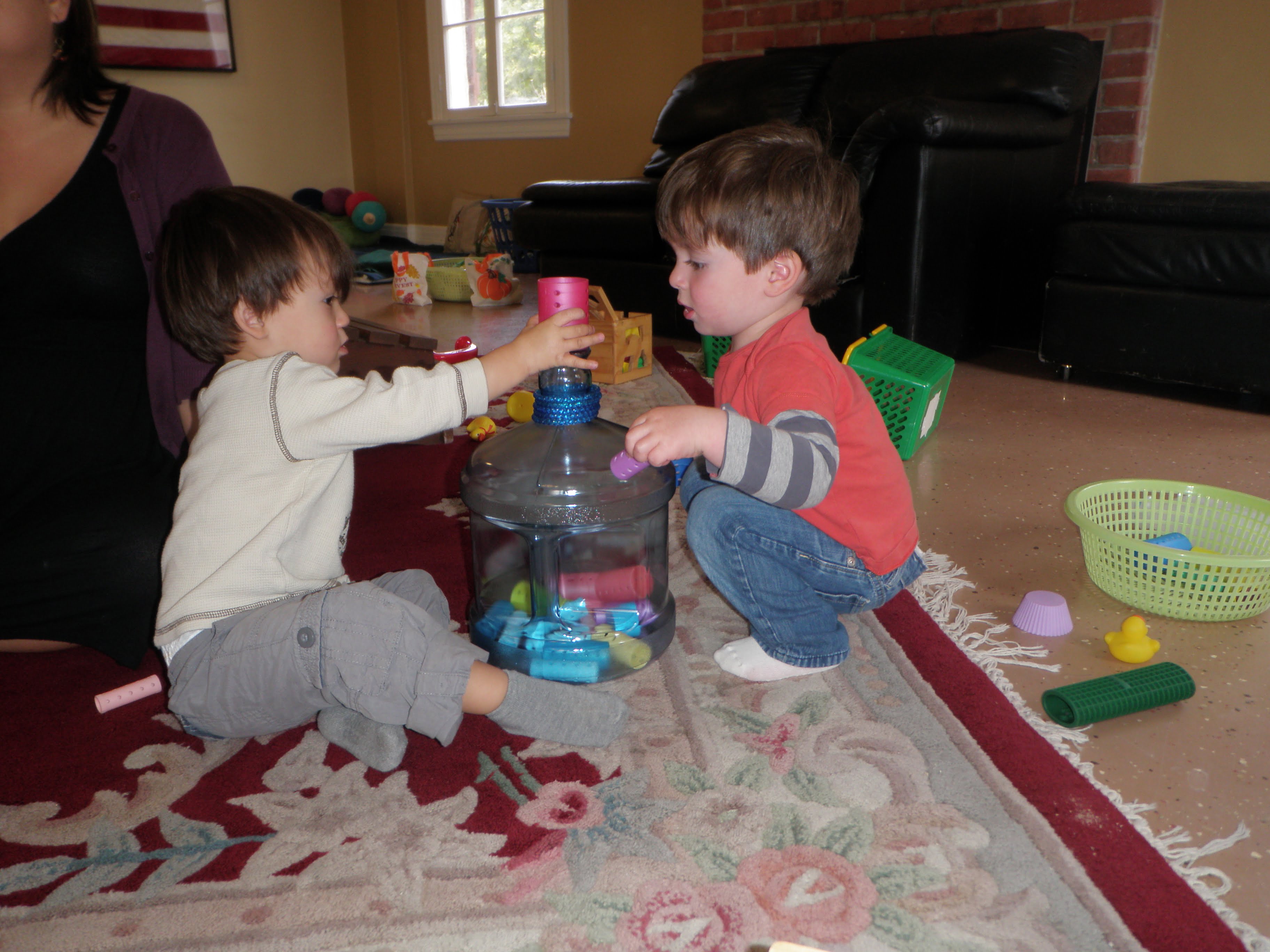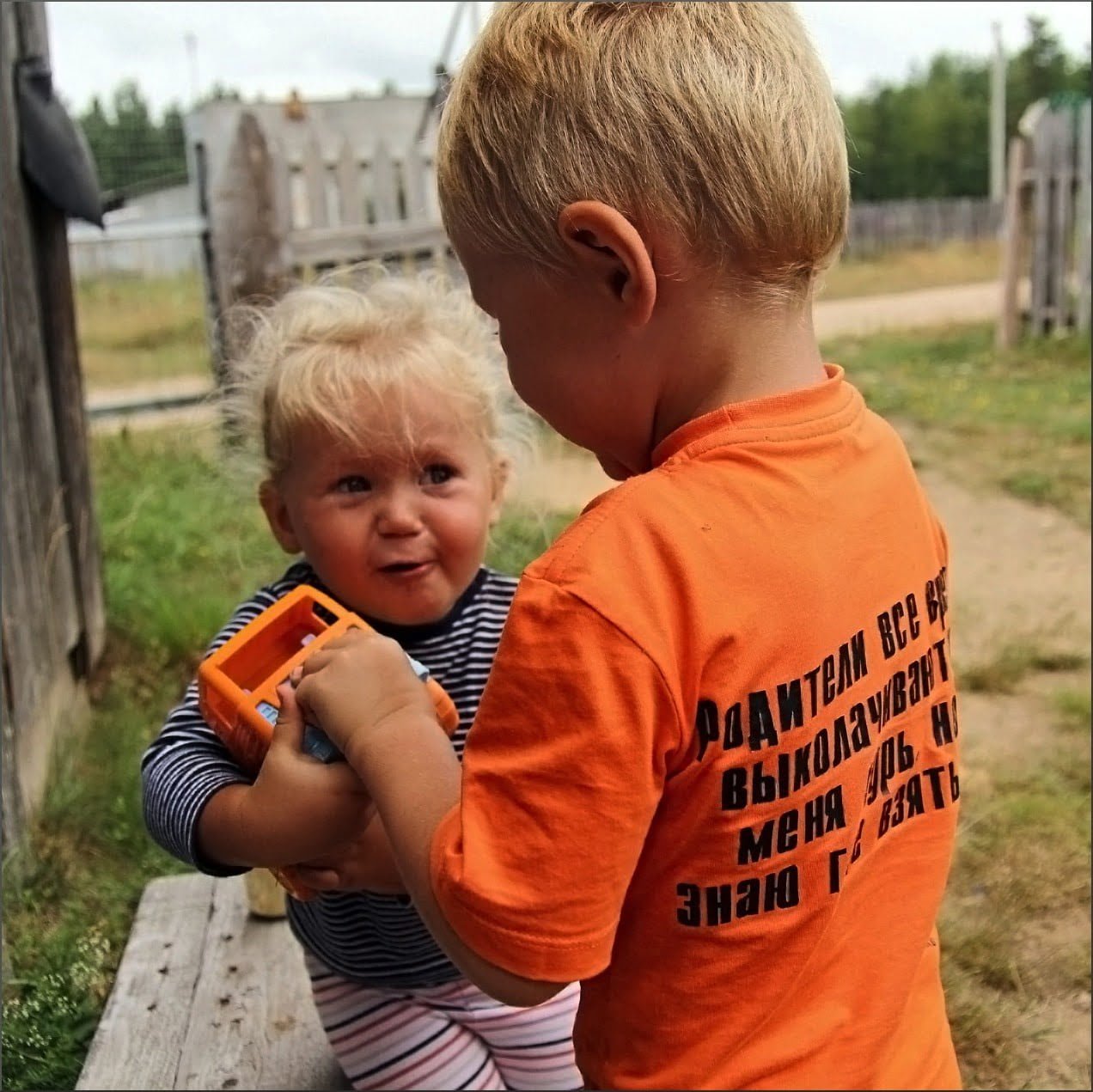Playdates can be a wonderful opportunity for our children to socialize. We attend them with the hope that our kids will have fun and that we, as parents, can also enjoy some social time. Unfortunately, this isn’t always the case. Some playdates can become overwhelming and stressful. One dad from my RIE® Parent-Infant Guidance™ Class recently returned from a playdate involving a 17-month-old and a 2½-year-old, wondering what he could do for future success.
So, what can you do when children aren’t playing peacefully?
1. Get down to the child’s level
When we lower ourselves to the child’s eye level, we increase our chances of connecting. Additionally, being close by makes it easier to step in when necessary. Children find someone on the same level less intimidating, and the more comfortable they feel, the easier it is for them to regulate their emotions and cooperate.
2. Narrate what you see
It’s crucial not to take sides and remain as objective as possible. Narration helps both children process what’s happening.
- “Susie was playing with the cup, hmmm… and it seems like Mike wants to play with it too.”
- “Looks like both of you want this cup.”
- “It appears that Susie isn’t finished with the cup; she’s still holding onto it.” Narration can also help other adults in the room (park) understand what’s going on.
3. Set a clear limit
If one child hits another, place your hand between them. Communicate, “I won’t let you hit.” Use a normal tone of voice.
4. Model what they CAN do instead
- “I wonder if there’s another cup nearby?” or “You can wait for Susie to finish with the cup.”
- If a child is touching, “You can touch his/her hair gently, like this” (demonstrate a gentle caress).
- If a child pulls away from a hug, “It seems like Susie doesn’t want a hug, but I’d like one!” (Offering yourself for a hug can help a child who insists on giving a hug).
- “This truck is heavy; I don’t want you to throw it. Let’s find something else together that we can throw.”
5. Take a break
If the tension continues, take a break. If possible, step out of the room with your child and state your plan: “Looks like Susie and I need a break for a minute.”
6. Ask for help
If you’re no longer comfortable guiding the situation, be honest about it and ask the other adults present to step in and assist. Say, “This is stressful. It seems to me that Susie is really overwhelmed, and I’m not sure what to do.”
*Keep in mind that sometimes the parents of the other child may not know how to handle the situation either. They might not be comfortable setting limits, so understanding their perspective can be helpful.
7. Shorten the playdate
If nothing seems to work, consider cutting the playdate short and heading home. This can help you gracefully exit the situation. Say, “We need some time to rest; let’s try again another time.”
I hope these tips help you feel more confident during your next playdate.
Feel free to reach out if you’d like more information about RIE® Parent-Infant Guidance™ Classes.
Foto credit: Elena Ivanova
Wishing you all the best on this challenging yet exciting parenting journey!
Warmly,
Teacher Kira















